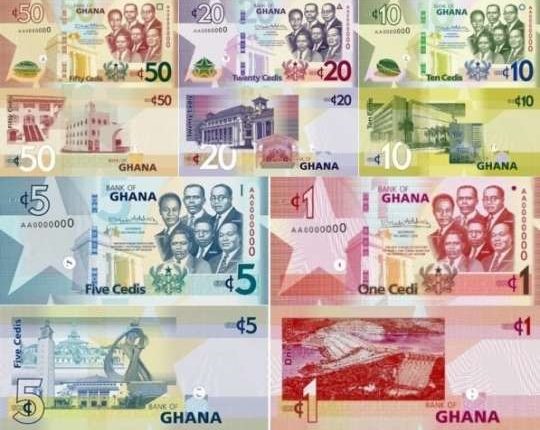Ghana Central Bank January 2024 Summary of Economic and Financial Data disclosed that in the opening month of 2024, the Cedi faced a mixed bag of fortune in its foreign exchange performance.
The currency exhibited a 0.7% depreciation against the US Dollar, continuing a trend that had troubled the Cedi throughout 2023. However, there was a glimmer of positivity as it managed to appreciate by 0.7% against the Euro during the same period.
The 0.6 percentage point depreciation against the greenback in January adds to the woes that have plagued the Cedi over the past year. In 2023, Ghana’s currency experienced a relentless decline against the world’s strongest currency – the American dollar. October and November of 2023 witnessed particularly steep depreciations, with rates soaring to 25.4% and 26.2%, respectively. The downward spiral continued into December, reaching a staggering 27.8% depreciation against the dollar.
The broad picture for the entire year of 2023 reveals a consistent loss of value for the Cedi against not only the dollar but also the pound and the euro. This tripartite depreciation raises concerns about the overall stability of Ghana’s currency and the potential impact on the nation’s economic health.
One significant factor contributing to the Cedi’s depreciation in 2023 was the notable reduction in the Bank of Ghana’s (BoG) foreign reserves. This decline played a pivotal role in the country’s decision to seek assistance from the International Monetary Fund (IMF) through a $3 billion Fund program.
The call on the IMF underscores the gravity of the situation, emphasizing the need for external support to stabilize the currency and restore confidence in the nation’s financial landscape.
Fortunes
In a tale of contrasting fortunes, while the cedi depreciated against the US Dollar, marking a continuation of the trend from the previous year, it managed to post gains against the Euro.
The Cedi’s resilience was evident in its appreciation by 0.7 percentage points against the Euro. This positive shift provides a glimmer of hope amidst the challenges posed by its depreciation against the Dollar and Pound during the same period.
In contrast to its Euro gains, the Cedi faced headwinds against the British Pound, depreciating by 0.7 percentage points. This dichotomy in performance raises questions about the intricate factors influencing the Cedi’s value against different global currencies.
According to the Central Bank’s January 2024 Summary of Economic and Financial Data, the current exchange rates stand at $1/GHS 11.92, £1/GHS 15.22, and €1/GHS 13.03. These rates encapsulate the series of fluctuations that the Cedi experienced against the Dollar, Pound, and Euro, respectively.
As Ghana navigates the complexities of international trade and finance, policymakers and market participants alike will closely monitor these currency dynamics to gauge the overall health and resilience of the nation’s economy.
In the coming months, it will be crucial to observe how the Cedi responds to evolving economic conditions and external factors. Meanwhile, the Cedi’s depreciation and appreciation against different currencies paints a complex picture, highlighting the need for a strategic and adaptive approach to managing the nation’s currency in the global market.
Looking forward, it is imperative for policymakers to address the underlying issues that have contributed to the Cedi’s depreciation. Strategies to bolster foreign reserves, enhance economic diversification, and attract foreign investments must be explored to fortify the currency against further declines.
The Cedi’s performance In January 2024 reflects the persisting challenges it faced throughout the preceding year. As Ghana grapples with economic challenges, the performance of the Cedi remains a critical indicator of the country’s fiscal health.




Comments are closed.